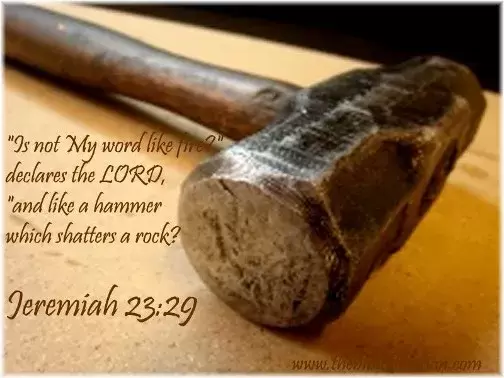2 Kings 2Throughout history, the transfer of leadership has been a tenuous moment. Even today, some nations around the world teeter on the brink of civil war when one leader dies and another comes to power.
With such shifts in leadership often comes the question: What will the future hold? A similar question underlies today’s passage as we read about the end of the prophet Elijah’s ministry in Israel. His impending end was seemingly known by all, and Scripture builds our suspense for ten verses before we learn his (and Israel’s) fate. When Elijah was finally taken up in miraculous fashion, Elisha’s words summarized the sentiment of the moment: “Where now is the Lord, the God of Elijah?” (v. 14). The answer is found in the details of the text. Just as Elisha accompanied Elijah from Bethel to Jericho to the Jordan, so now starting in verse 14, Elisha retraced those steps, moving from the Jordan to Jericho to Bethel, performing notably miraculous actions. He parted the Jordan, healed deathly water, and cursed opponents of God. Where is God? He is right here, just as He had been for generations. Circumstances change and leaders come and go, but God and His powerful word remain the same. Our passage illustrates God’s enduring presence in a two-fold manner. First, we see God’s restorative power (vv. 19–22). Through Elisha, God’s grace healed the tainted waters of the cursed land (cf. Josh. 6:26). Just as Moses healed the bitter waters of Marah (cf. Ex. 15:22–26), so now God’s restorative power continued. Isn’t this the ultimate message of the gospel, that God can reverse a once cursed and fallen land and bring about blessing and life? Second, we see God’s power in judgment (vv. 23–25). As the youths of Bethel (a hot-bed of idolatry; see 1 Kings 12:25– 33) maliciously rejected God and His prophet, the consequence were consistent with the warnings of judgment in Leviticus 26:21–22. God’s powerful word brings either blessing or curse, depending on how we receive that word. The real question is not, Where is God?, but How will you respond to His enduring presence? Application Do you ever wonder where God is as you consider the future? Do you doubt His presence, His power, and His care, wondering if He can ever restore the brokenness of your own life? Be encouraged by God’s enduring power and presence in our lives. Perhaps you can make a list of the anxieties in your own life, then bring them before the Lord asking Him to instill you with confidence in His enduring word that can heal even those most broken aspects of our lives. Verse to ponder... The grass withers and the flowers fall, but the word of our God stands forever. Isaiah 40:8
0 Comments
2 Kings 1In the ancient world, writing of any length was done not in books, but on scrolls, so authors limited their writing to the space available. If an author had more to say, a second scroll was used. It is important to remember that 2 Kings is really a continuation of the Israelite history recorded in 1 Kings. This book begins by recounting that Ahaziah now reigns. We know from 1 Kings 22:51–53 that Ahaziah “did evil in the eyes of the Lord”; he served Baal and provoked God to anger. Now in 2 Kings 1, Ahaziah has injured himself severely enough to wonder about his life. Instead of seeking God, he consults a foreign god. His request is a telling one. Now at the end of his life Ahaziah implies that either the God of Israel does not exist, or He is irrelevant to his needs! Perhaps the most important in today’s message is revealed in God’s severe opposition to idolatrous disobedience. On three separate occasions God’s message to Ahaziah is repeated: “Is it because there is no God in Israel that you are going off to consult Baal-Zebub . . . You will certainly die!” (vv. 3–4, 6, 16). In the end, God proved true and Ahaziah died “according to the word of the Lord that Elijah had spoken” (v. 17). On two other occasions, fire came down from heaven to consume the king’s troops who arrogantly tried to seize Elijah and silence God’s word. God reigns over Baal, and the fire underscores that message (vv. 9–12; see 1 Kings 18). Yet there is another message here as well: an offer of mercy for those who will take it. Consider the third captain: he humbled himself, begged for mercy (vv. 13–15), and he was spared. God’s message to Ahaziah may seem like a harsh rebuke of disobedience, but viewed another way, it was also an offer of hope. We can repent and turn back to God. He has not forgotten us and he calls us to obedience once again. If only Ahaziah would have listened to that word! Application Today’s passage reminds us of the seriousness of idolatry, but also of the offer of mercy in God’s word. Have you, like Ahaziah, treated God as nonexistent or irrelevant in your own life? Find a moment today to reflect on the ways you may be turning from God to rely upon something else for comfort. Then take today’s word as a challenge for repentance and an offer of mercy from a faithful God who does not give up on His people (even in their unfaithfulness). Verse for thought... “Is not my word like fire,” declares the Lord, “and like a hammer that breaks a rock in pieces?” Jeremiah 23:29 from "Today In The Word" by Moody
|
AuthorAdmin Archives
March 2024
Categories |
|
Lagoonside Church
[email protected] Pastor Wayne 083-386-9374 Pastor Dave 083-283-7927 Dr. Phil 076-286-6591 6 Queen Street CBD Knysna, South Africa |
Family Worship & Sunday School
9:30 am, Sundays Men's Bible Study Tuesdays 8:30-10:00 Ladies Bible Study Tuesdays 11:00-12:00 Kids Club Fridays 15:30-17:00 |


 RSS Feed
RSS Feed
